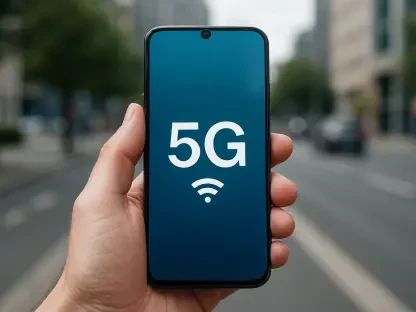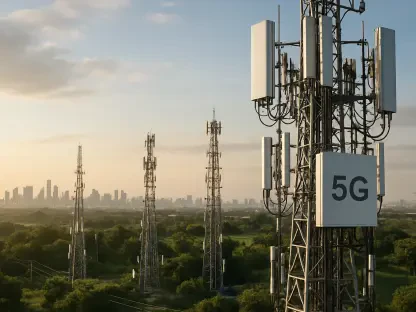Navigating the complexities of telecommunications mergers in the modern era is a challenge that brings into focus the delicate balance between business growth and consumer protection. T-Mobile’s proposed acquisition of UScellular’s spectrum licenses, valued at $4.4 billion, exemplifies such a test. As the telecommunications giant seeks expedited approval from the Federal Communications Commission (FCC), numerous consumer advocacy groups express concern that this merger might stifle competition and raise costs. This concern stems from observed trends where past mergers have led to increased consumer prices. With the FCC’s comprehensive review underway, the discourse captures the intricate interplay of corporate expansion, consumer rights, and regulatory oversight.
Consumer Advocacy Groups Sound the Alarm
Competition and Pricing Concerns
The potential impact of T-Mobile’s acquisition plan has attracted significant attention from consumer advocacy organizations. Entities such as the Rural Wireless Association, Communications Workers of America, and Public Knowledge have articulated apprehensions that an expansion in T-Mobile’s dominance might lead to anti-competitive practices. These groups reference historical precedents, notably observing that service pricing increased following the T-Mobile and Sprint merger. For consumers, especially those in rural areas, lessened competition often translates to reduced service options and higher expenses. The alignment of concerns from various quarters underscores the apprehension that, despite assurances, the merger may not align beneficially with public interests.
EchoStar, another voice in the mix, raises the issue of spectrum concentration. The argument follows that T-Mobile would amass an overwhelming share of available spectrum, potentially hindering smaller players’ capability to compete. This could perpetuate a cycle where dominant players consolidate their footing, making market entry or expansion more challenging for newcomers. By focusing on potential price hikes and reduced competition, these groups spotlight the broader implications of market consolidation on consumer choice and pricing structures.
Employment and Consumer Protections
Employment implications form another axis of concern for those wary of the proposed merger. The Communications Workers of America has offered insights into how previous organizational consolidations have adversely impacted jobs. After T-Mobile’s integration with Sprint, the reduction in store numbers was seen as a direct result of operational streamlining. The fear is that if this precedent repeats itself, it could culminate in job losses, particularly affecting local labor markets. The potential contraction of retail locations, and consequently staff, raises significant socio-economic questions, particularly in economically sensitive communities.
Parallel to employment, consumer safeguards are a pressing issue. Advocacy groups are urging proactive measures, like automatic handset unlocking mandates, to shine a light on consumer interests. Such initiatives can assure uninterrupted access and choice for customers, even as service providers rearrange their market positions. This call to action captures a collective advocacy effort to ensure that consumer protections are built into merger agreements, preserving not only employment but also user-centric service provision.
Regulatory Review and Industry Implications
The Role of the FCC
The FCC finds itself at a critical juncture, tasked with navigating complex industry landscapes while ensuring public interest remains paramount. The commission’s review process serves as a platform for a multitude of voices, from telecom giants like AT&T and Verizon to consumer advocacy groups. Ensuring transparency and thorough evaluation, the FCC is dissecting the ramifications of spectrum concentration and scrutinizing claims regarding the public interest. This scrutiny can provide safeguards against unfair market practices and ensure a competitive landscape that benefits all sectors of society.
The FCC has invited submissions from significant industry stakeholders, seeking illustrative insights on how this transaction might sway the broader telecom scene. The May deadline for these inputs marks a pivotal stage in the review process, representing a collaborative opportunity to shape the future framework of telecommunications. As the FCC synthesizes these varied perspectives, the balance sheet of the telecom industry’s future rests in its deliberations, positioning regulatory bodies as cornerstone arbiters in consumer and corporate equilibrium.
Broader Industry Dynamics
The potential implications of the T-Mobile and UScellular deal ripple beyond immediate market dynamics, impacting long-term industry trends. If T-Mobile secures more spectrum, it may catalyze shifts in strategic investments, consumer expectations, and service innovations. While some view mergers as catalysts for advancing technological capabilities, others worry about undue concentration stifling innovation. This dual perspective continues to fuel debate, highlighting the tension between rapid technological advancement and maintaining fair market conditions.
Beyond immediate concerns, this merger signals a broader industry shift toward fewer but larger players. The ripple effect could lead to smaller players struggling to keep pace, potentially limiting their ability to innovate or invest in next-generation technologies. As the industry’s structure evolves, the decisions made in these dealings set precedents for future mergers and acquisitions, shaping the telecom landscape for years to come. Maintaining a robust framework that adapts to both consumer needs and industry expansion remains key to ensuring the industry thrives while keeping all players accountable.
Evaluating Future Trajectories
Navigating telecommunications mergers in today’s world is fraught with challenges, emphasizing the delicate balance between business expansion and protecting consumer interests. T-Mobile’s proposed $4.4 billion acquisition of UScellular’s spectrum licenses serves as a prime example. As T-Mobile seeks swift approval from the Federal Communications Commission (FCC), consumer advocacy groups voice concerns that such mergers could hinder competition and lead to higher costs for consumers. These concerns echo past patterns where similar mergers have resulted in raised consumer prices. The FCC is conducting a comprehensive review, which highlights the complex dance between corporate growth, consumer protection, and the need for regulatory oversight. Stakeholders are wary of the long-term implications on market dynamics and consumer choice. As this event unfolds, it represents a pivotal moment that could reshape the telecommunications landscape and influence future business strategies and regulatory approaches in the sector.









